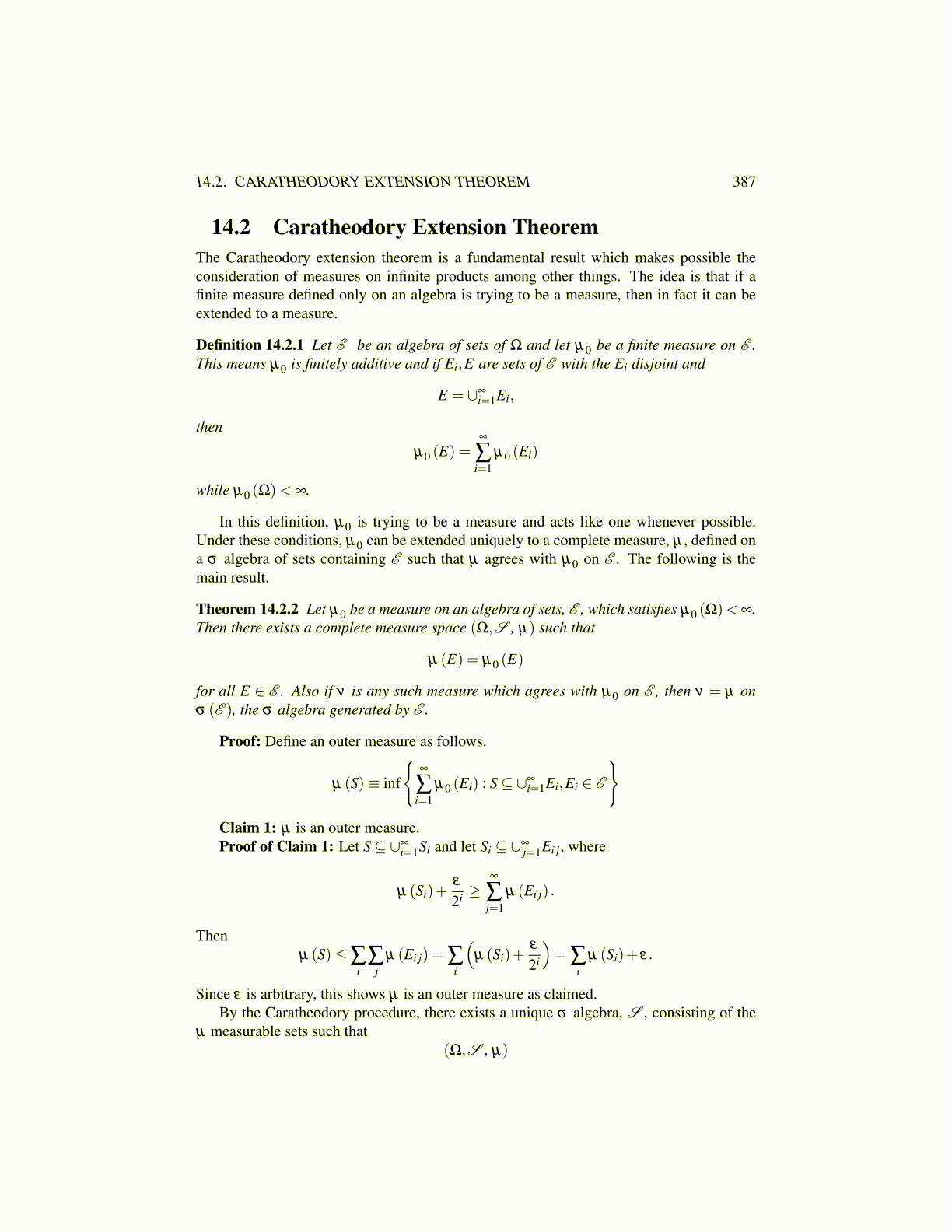
14.2. CARATHEODORY EXTENSION THEOREM 387
14.2 Caratheodory Extension TheoremThe Caratheodory extension theorem is a fundamental result which makes possible theconsideration of measures on infinite products among other things. The idea is that if afinite measure defined only on an algebra is trying to be a measure, then in fact it can beextended to a measure.
Definition 14.2.1 Let E be an algebra of sets of Ω and let µ0 be a finite measure on E .This means µ0 is finitely additive and if Ei,E are sets of E with the Ei disjoint and
E = ∪∞i=1Ei,
then
µ0 (E) =∞
∑i=1
µ0 (Ei)
while µ0 (Ω)< ∞.
In this definition, µ0 is trying to be a measure and acts like one whenever possible.Under these conditions, µ0 can be extended uniquely to a complete measure, µ , defined ona σ algebra of sets containing E such that µ agrees with µ0 on E . The following is themain result.
Theorem 14.2.2 Let µ0 be a measure on an algebra of sets, E , which satisfies µ0 (Ω)< ∞.Then there exists a complete measure space (Ω,S , µ) such that
µ (E) = µ0 (E)
for all E ∈ E . Also if ν is any such measure which agrees with µ0 on E , then ν = µ onσ (E ), the σ algebra generated by E .
Proof: Define an outer measure as follows.
µ (S)≡ inf
{∞
∑i=1
µ0 (Ei) : S⊆ ∪∞i=1Ei,Ei ∈ E
}Claim 1: µ is an outer measure.Proof of Claim 1: Let S⊆ ∪∞
i=1Si and let Si ⊆ ∪∞j=1Ei j, where
µ (Si)+ε
2i ≥∞
∑j=1
µ (Ei j) .
Thenµ (S)≤∑
i∑
jµ (Ei j) = ∑
i
(µ (Si)+
ε
2i
)= ∑
iµ (Si)+ ε.
Since ε is arbitrary, this shows µ is an outer measure as claimed.By the Caratheodory procedure, there exists a unique σ algebra, S , consisting of the
µ measurable sets such that(Ω,S , µ)